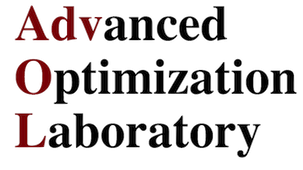The School of Computational Engineering & Science presents a free public lecture:
The Future of Computers
William Pulleyblank, Ph.D.
Vice President, Center for Business Optimization,
IBM Global Business Services.
Thursday, October 18, 2007
7:30 p.m.
McMaster University, Information Technology Building (ITB), Room 137
Lecture poster
Imagine if every two years we could buy a car that went twice as fast, used half the gas, and cost half the price. Can't imagine it?
Consider this: over the last sixty years, computers have evolved at that rate every 18-24 months they're twice as fast, have double the storage, and are half the cost. Today's computers are capable of trillions of operations a second, and supercomputers, like those developed by IBM's Blue Gene program, tackle a vast array of complex problems.
These advances can help us understand how a drug works, develop a solar panel that is ten times more efficient, calculate how nuclear stockpiles degrade, or model the function of the human brain. We can harness the astonishing power of computers to improve our daily lives, but there are significant challenges ahead.
McMaster's inaugural Visiting Innovation Professor, IBM Vice President Bill Pulleyblank, has enjoyed a career spanning nearly two-thirds of the modern computing age. He led the interdisciplinary Blue Gene project that resulted in the development of the Blue Gene/L, the most powerful supercomputer in the world, and now he is leading IBM's efforts to help universities, industry, and government utilize the power of supercomputers in planning and operations.
This free public lecture will provide the audience with a ringside seat to Dr. Pulleyblank's reflections on the progress of the computer industry, the problems and potential solutions it faces, and what the future holds.
The School of Computational Engineering & Science presents a free public lecture:
Petaflops, Seriously
Dr. David Keyes
Acting Director of the Institute for Scientific Computing Research
Lawrence Livermore National Laboratory.
Monday, April 9, 2007
5:30 - 7:30 p.m.
McMaster University, ITB-137
Lecture poster
Sustained floating-point rates on real applications, as tracked by the Gordon Bell Prize, have increased by five orders of magnitude from 1988, when 1 Gigaflops was reported on a structural simulation, to 2005, when 100 Teraflops were reported on a molecular dynamics simulation. Various versions of Moore's Law over the same interval provide only two to three orders of magnitude of improvement for an individual processor; the remaining factor comes from concurrency, which is of order 100,000 for the BlueGene/L computer, the platform of choice for the majority of 2005 Bell Prize finalists.
As the semiconductor industry begins to slip relative to its own roadmap for silicon based logic and memory, concurrency will play an increasing role in attaining the next order of magnitude, to arrive at the long-awaited milepost of 1 Petaflops sustained on a practical application, which should occur around 2008. Simulations based on Eulerian formulations of partial differential equations can be among the first applications to take advantage of petascale capabilities, but not the way most are presently being pursued. Only weak scaling can get around the fundamental limitation expressed in Amdahl's Law and only optimal implicit formulations can get around another limitation on scaling that is an immediate consequence of Courant-Friedrichs-Lewy stability theory under weak scaling of a PDE.
Many PDE-based applications and other lattice-based applications with petascale roadmaps, such as quantum chromodynamics, will likely be forced to adopt optimal implicit solvers. However, even this narrow path to petascale simulation is made treacherous by the imperative of dynamic adaptivity, which drives us to consider algorithms and queuing policies that are less synchronous than those in common use today. Drawing on the SCaLeS report (2003-04), the latest ITRS roadmap, some back-of-the-envelope estimates, and numerical experiences with PDE-based codes on recently available platforms, we will attempt to project the pathway to Petaflop's for representative applications.
![]() MPRIME sponsors McMaster Optimization Seminar Series organized by the Advanced Optimization Lab at McMaster University. You can find the seminar information here.
MPRIME sponsors McMaster Optimization Seminar Series organized by the Advanced Optimization Lab at McMaster University. You can find the seminar information here.
![]() The CORS Diploma in Operational Research
The CORS Diploma in Operational Research
Check if you are eligible for the Diploma of Canadian Operational Research Society.
 The Institute for Operations Research and the Management Sciences (INFORMS)
The Institute for Operations Research and the Management Sciences (INFORMS)
Student membership information


